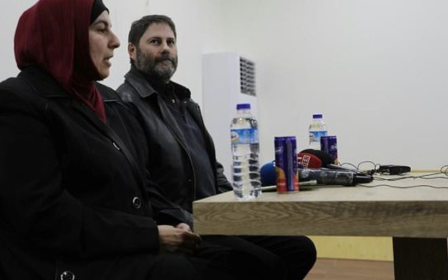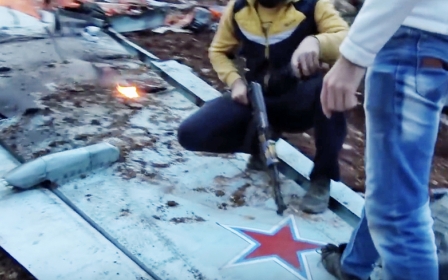UN condemns rising violence in Syria as air strikes in Ghouta kill 63

Fresh government strikes on a besieged rebel-held enclave near Damascus killed 63 people on Tuesday despite mounting Western pressure on Syrian President Bashar al-Assad. The violence prompted the United Nations to call for an immediate humanitarian ceasefire.
Strikes on several locations in the area east of the capital also wounded more than 100 people, the Syrian Observatory for Human Rights said.
The latest bloodshed came a day after strikes and shelling killed at least 31 civilians in the area, which has been besieged by government forces since 2013.
Several children were among Monday's dead.
"Today there is no safe area at all. This is a key point people should know: there is no safe space," Siraj Mahmoud, the head of the Civil Defence rescue service in opposition-held rural Damascus, told Reuters.
"Right now we have people under rubble, the targeting is ongoing, warplanes on residential neighbourhoods," he said.
Eastern Ghouta and Idlib, a northern province where violence also flared this week, are both de-escalation zones agreed last year in a bid to pave the way for an end to the conflict.
A UN-mandated committee, however, said the recent escalation "made a mockery" of the deal, which has failed to take hold as the Syrian government continues its nationwide military reconquest.
The raids also came after a heated exchange between the United States and Russia at the United Nations on Monday over the reported use of chemical weapons by the government.
Government or allied forces have been accused of firing suspected chlorine-filled munitions on targets in Eastern Ghouta on several occasions in recent weeks, sparking US warnings of military action.
Russia, Assad's main backer, retorted that "no perpetrators have been identified" and accused the United States of orchestrating a "propaganda campaign" against the Syrian government.
The United Nations called on Tuesday for an immediate humanitarian ceasefire in Syria of at least one month.
In a statement, Paulo Pinheiro, head of the International Commission of Inquiry on Syria, said an ongoing Syrian government siege of Eastern Ghouta "involve(s) the international crimes of indiscriminate bombardment and deliberate starvation of the civilian population".
UN envoys called for a cessation of hostilities to enable humanitarian aid deliveries, and the evacuation of the sick and wounded, listing seven areas of concern including northern Syria's Kurdish-led Afrin region being targeted by a Turkish offensive.
Assad, helped by Iran-backed militias and the Russian air force, is pursuing military campaigns against rebels in the last major redoubts of territory held by his opponents in western Syria.
In a statement, the UN representatives noted that humanitarian needs were rising in Eastern Ghouta, where people had not received inter-agency assistance since late November.
"Meanwhile, fighting and retaliatory shelling from all parties are impacting civilians in this region and Damascus, causing scores of deaths and injuries," said their statement, released before the latest casualty tolls emerged on Tuesday.
"In Idlib, the military operations resulted in increased casualties and movement of civilians to safer areas. Some of them have been forced to move several times to escape fighting," they said, noting that two pro-government villages in Idlib also continued to be besieged by rebels.
New MEE newsletter: Jerusalem Dispatch
Sign up to get the latest insights and analysis on Israel-Palestine, alongside Turkey Unpacked and other MEE newsletters
Middle East Eye delivers independent and unrivalled coverage and analysis of the Middle East, North Africa and beyond. To learn more about republishing this content and the associated fees, please fill out this form. More about MEE can be found here.




